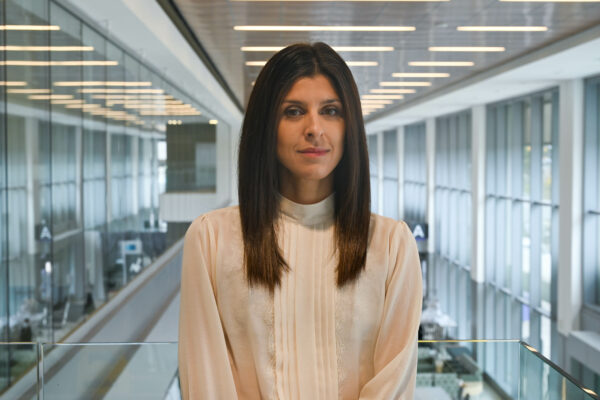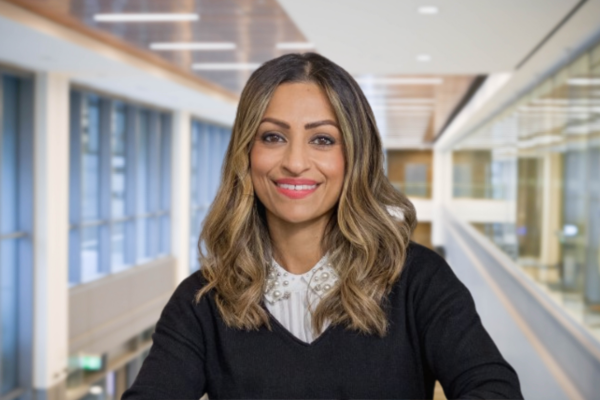Women in Medicine Month, Dr. Punam Rana and Dr. Tina Kerelska
29
Sep
2022
September is Women in Medicine Month, recognizing all women who have pursued and/or are interested in pursuing careers in medicine. Female physicians, Dr. Punam Rana and Dr. Tina Kerelska are accomplished women who have displayed resilience and dedication within their medical professions. They have shared their motivations and challenges as women in medicine, as well as advice for those interested in similar career paths.


Tell us about your role.
Dr. Rana: As a medical oncologist in a community hospital, I work closely with cancer patients with a wide range of solid tumors including cancers of the breast, lung, colon, prostate, and others. Starting from the initial cancer diagnosis, I help patients navigate their unique cancer journey. We discuss treatment options including chemotherapy, immunotherapy, and oral agents, to determine the optimal plan for each patient. With a growing awareness about the benefits of lifestyle factors for cancer risk reduction, I try to educate my patients about the importance of exercise, healthy diet choices, and optimal stress management.
Dr. Kerelska: As an anesthesiologist, I spend most of my days in the operating room looking after patients undergoing surgical procedures. I am responsible for evaluating and monitoring patients before, during, and after surgery, ensuring they are safe and pain free. I work with a large team of nurses and surgeons along a patient’s surgical journey from their pre-operative assessment, to their intra-operative monitoring and safety, and their pain free post-operative recovery, and safe discharge home. I also work with our acute pain service nurse practitioners to ensure patients have a pain free post-operative course when admitted to our Hospital. Furthermore, I work in the endoscopy suite, the outpatient hysteroscopy suite, and anywhere in the Hospital where patients may need sedation to undergo a medical procedure (CT, MRI, ECT). I also provide epidurals for women in labour and provide anesthesia for women having a caesarian section in our mother and baby unit. I am involved in research and act as the co-investigator at Humber for two large multi-centre Canadian clinical trials. The vast range of patients, procedures, and academic opportunities are what originally attracted me to anesthesia and are what keep me going every day.
What or who inspired you to become a physician?
Dr. Rana: It was my father, who worked as a family physician with a focus on palliative care, who first inspired my love for medicine. When I was about eight years old, he would take me with him to do house calls for some of his elderly and palliative patients. I was immediately inspired by the impact he had in the lives of his patients and their family members. I knew I wanted to have a career where I could work closely with people in a similar capacity.
Dr. Kerelska: I came to Canada with my parents when I was 13 years old. I barely spoke English. We faced many challenges as new immigrants in Canada. My parents, both engineers back home, worked tirelessly at a myriad of jobs as they navigated through the challenges of living in a new country. They instilled a strong work ethic in me and worked hard to ensure I had opportunities to become whatever I wanted to be. There was not a single moment or a person that inspired me to become a physician; rather I was always intrigued by how people’s personal struggles and backgrounds affected their health. I feel that my own experiences shaped my understanding of a patient’s challenges and assisted me in my path to becoming a physician. I am so happy to be working at Humber and serve the community that welcomed me to Canada years ago.
Did you have any role models growing up?
Dr. Rana: I feel fortunate to have had many amazing role models, both male and female, throughout my medical training. Particularly in the field of medical oncology, there were many female mentors in the GTA who I admired for their dedication to their career and their ability to balance their work life balance.
Dr. Kerelska: Along my path to becoming a physician, I had many mentors who supported and encouraged me. However, during a recent conversation with a female colleague, we discussed how it was challenging to find a strong female mentor during our anesthesia training. The anesthesia speciality in the teaching centres I had trained in were predominantly male dominated. I struggled to find someone who embodied the physician I wanted to become – somebody who successfully balanced clinical practice and leadership with personal life. However, times are changing and I can think of a few of my female colleagues who would have inspired me as a trainee.
Have you faced any challenges as a woman in medicine?
Dr. Rana: There are definitely challenges to being a woman in medicine. One big challenge for me has been balancing motherhood with my career. During my fellowship, there was explicit pressure to delay having children and to have an abbreviated maternity leave. Fortunately, I felt well supported at Humber for my subsequent pregnancies, which was crucial in allowing me to return to work feeling focused on my patients.
There are also challenges in being a young female doctor that are evident from the beginning of residency training. We get accustomed to hearing comments about how young we look, feeling as though we must work harder to prove our knowledge and experience compared to our male counterparts.
Dr. Kerelska: Being a female physician has had its challenges. During my training and early career I was frequently mistaken for a non-physician and began to doubt myself every time this occurred. Residency training is very taxing and experiencing ‘imposter syndrome’ only adds to the challenges trainees face. Thankfully, I had the support of many female co-residents, who all experienced similar challenges. I now frequently find myself working in an all-female team in the operating room. Just recently, a male patient walked into the operating room to see an all-female team and commented on how happy he was to see this.
What would you say to younger women interested in pursuing a career in medicine?
Dr. Rana: I would encourage young women to pursue medicine, as it is a very rewarding career on so many levels. I would recommend finding mentors, including female mentors, who you can trust and who can give you honest answers to your questions. Do not be afraid to ask questions. Do not be afraid to ask for what you want and deserve!
Dr. Kerelska: There are more women entering medical practices now than ever before. Being a woman in medicine is challenging, but fulfilling. Explore options and keep an open mind as you choose your path in medicine. Consider personal and career goals and seek what is important to you. Find strong female mentors and role models who can help you navigate challenges you may face. I cannot think of a more exciting time to be a woman in medicine!
